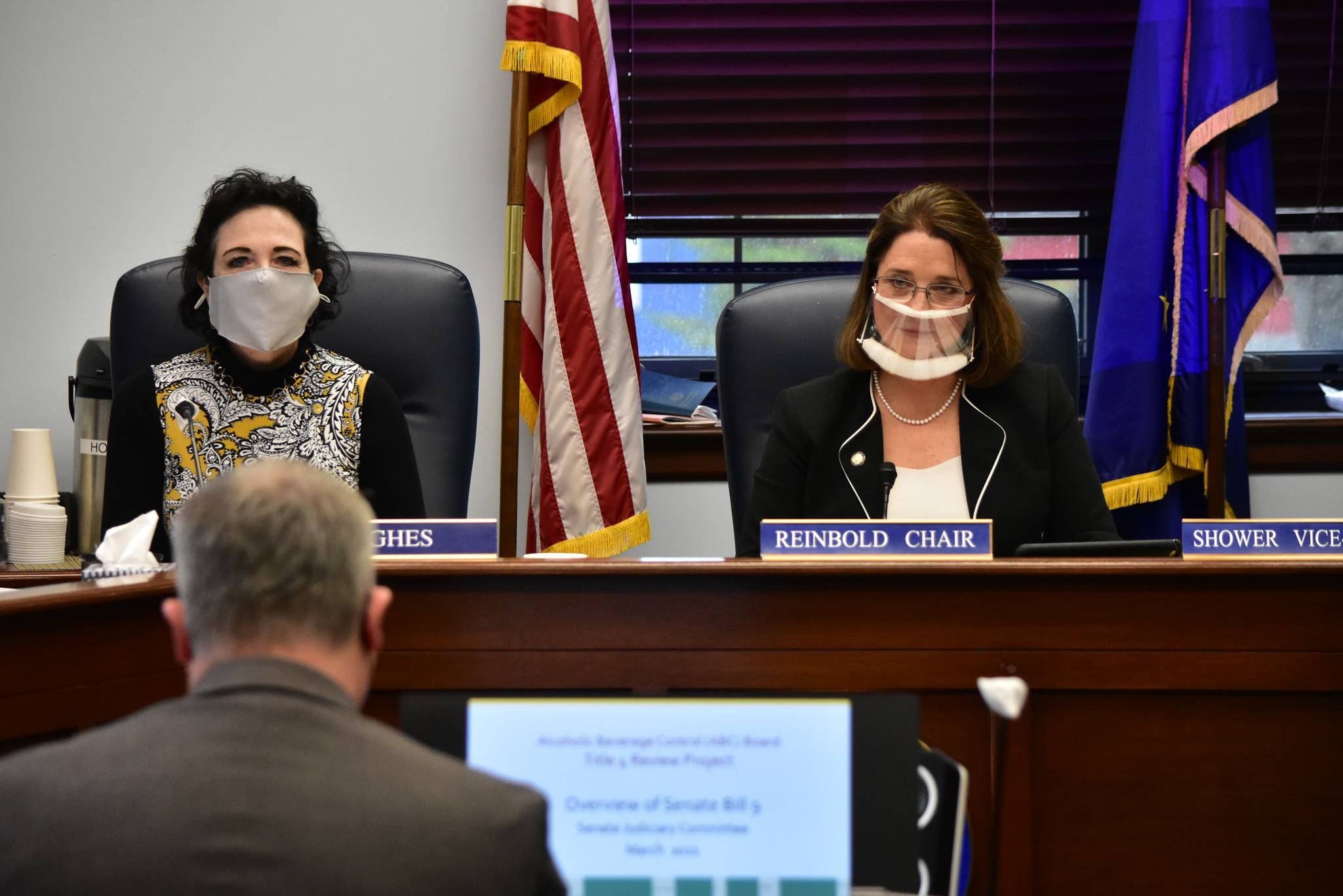Senators questioned Attorney General Treg Taylor on Wednesday, voicing concerns about executive branch overreach and other legal interpretations. The hearing was part of Taylor’s confirmation process after being appointed by Gov. Mike Dunleavy. His two immediate predecessors resigned following reports of past indiscretions.
Members of the Senate Judiciary Committee questioned Taylor on legal matters, asking how he would approach certain situations. One main concern for the committee’s chair Sen. Lora Reinbold were the restrictions put in place during the pandemic.
Reinbold asked Taylor several times if he believed health mandates put in place under the state’s emergency declaration carried the force of law, and if so, if he believed it was permissible for those mandates to curtail certain Constitutional liberties even without due process of law.
[Attorney general discusses plans, Clarkson in hearing]
Taylor affirmed that he did. The U.S. and state constitutions as well as the Alaska Disaster Act gave the governor the power to issue certain kinds of orders under extraordinary circumstances. Through the disaster declaration, the Legislature granted some of its rule-making authority to the governor under the conditions laid out under established Alaska law, Taylor said. Disaster declarations are meant to bypass the typical legislative process, he said, which is meant to be slow.
“I think the Alaska Disaster Act is an acknowledgment that sometimes in certain conditions that (legislative process) needs to be bypassed,” Taylor said. “Like any of those liberties, there are times when those can be infringed upon.”
Taylor gave what he said was the classic example of not being able to yell “Fire!” in a crowded theater.
Sens. Jesse Kiehl, D-Juneau, and Mike Shower, R-Wasilla, both pointed out the Legislature had the ability to call itself back into session and chose not to. Some lawmakers had wanted to call themselves into special sessions to address the emergency order but did not have the 40 votes necessary to do it.
In November, lawmakers sent a letter to Dunleavy asking him to call lawmakers into session, but the governor ultimately decided against it.
Republican lawmakers asked what Taylor would do as attorney general to push back against what they said was executive overreach from the Biden Administration concerning resource development. Taylor said the Department of Law was already working on several suits related to the issue.
Taylor gave the example of the Biden administration’s decision to review the decision to repeal the 2001 Roadless Rule as one area where DOL would push to assert state control. The Roadless Rule was repealed by the Trump administration despite protests from local conservationists, fishermen and tribal governments.
Kiehl questioned Taylor on DOL’s interpretation of what funds were susceptible to a financial mechanism known as “the sweep,” which moves the remainder of certain funds into the Constitutional Budget Reserve. In the past, the Dunleavy administration has tried to determine what funds are able to be swept, Kiehl said, in particular the Power Cost Equalization fund, which subsidizes electrical service in rural areas.
A review of the PCE issue is currently taking place, Taylor said, adding that he was willing to work with the Legislature on the matter.
Contact reporter Peter Segall at psegall@juneauempire.com. Follow him on Twitter at @SegallJnuEmpire.

